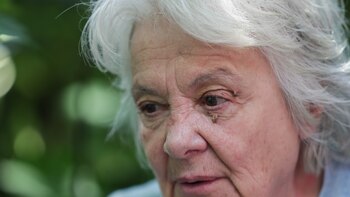A few weeks ago, Interior Minister Alfonso Chavari, together with other metropolitan authorities, announced Lima and Callao. The two regions declared that the proportion of Peru is a state of emergency, and this West seeks to control and reduce the crime rate during a period in which strict control over the population takes place. 012-2022 - According to the highest decree of the PCM, the event announced on February 3 is valid for 45 days, during which the population depends on the political constitution of Peru. .
The above-mentioned decree specifies certain constitutional rights stipulated in paragraphs 9, 11, 12 and 24 of the Constitution, such as the right to freedom, the inviolability of the home, freedom of assembly, during the period governing the measures adopted by the administration, freedom of movement in the national territory. It is important to note the following information about them:
The rights have been suspended
Right to freedom: The subject of the right can engage in any type of activity that exercises fundamental rights other than freedom, until it violates the rules that constitute public order, good practices and basic criteria.
Inviolability: The subject of the right may prevent him from entering the house for investigation, research or other reasons if the other person does not agree or a third party has not received a court order.However, if there is a serious allergy or serious danger, it may not be a hindrance.
FreeDomAssembly: Rightholder may be open to private places and to the public, and may be collected, collected or collected without prior notice, as long as they act peacefully. On the contrary, meetings in public places or on the road require prior notice to the authorities, which is why proven safety or health.
Freedom of movement on the territory of the state: as a rule, the subject of the right can freely move within the territory of the country in which he lives and gives him the opportunity to choose where he will live, except for health reasons or when applying a court order or foreign law.
What happens if I intervene?
The Supreme Decree contains detailed information on the involvement of the Peruvian Police and the Armed Forces. This intervention was made by Legislative Decree No. 1186, Legislative Decree on the Use of Armed Forces by the Peruvian Police, Legislative Decree No. 1095, Legislative Decree regulating the rules on the use and use of the Armed Forces in the Homeland, and respectively approved regulations.
It also allowed the participation of local and local governments in the constitution of the metropolitan area of Lima and Callao, which was implemented within the framework of current standards on civil safety.
What is an emergency situation?
This is a measure that, according to the political constitution of Peru, can be declared by the President of the Republic with the approval of the Council of Ministers, and which must be carried out only for a certain period of time Depending on how the authorities believe this, it can be applied throughout the stateterritory or as a separate specific sector.
A state of emergency is declared when there is a “violation of peace or internal rules, a disaster or a serious situation affecting the life of the country.” Article 137 of the Constitution states that the bill can not exceed 60 days, and if it is extended, a new decree will be required. If the President of the Republic provides in this way, he orders, but in this case the police are responsible for the order of support of the armed forces. This decision is based on a decree governing his actions in front of two bodies.
CONTRID
Últimas Noticias
Debanhi Escobar: they secured the motel where she was found lifeless in a cistern

The oldest person in the world died at the age of 119

Macabre find in CDMX: they left a body bagged and tied in a taxi
The eagles of America will face Manchester City in a duel of legends. Here are the details

Why is it good to bring dogs out to know the world when they are puppies




